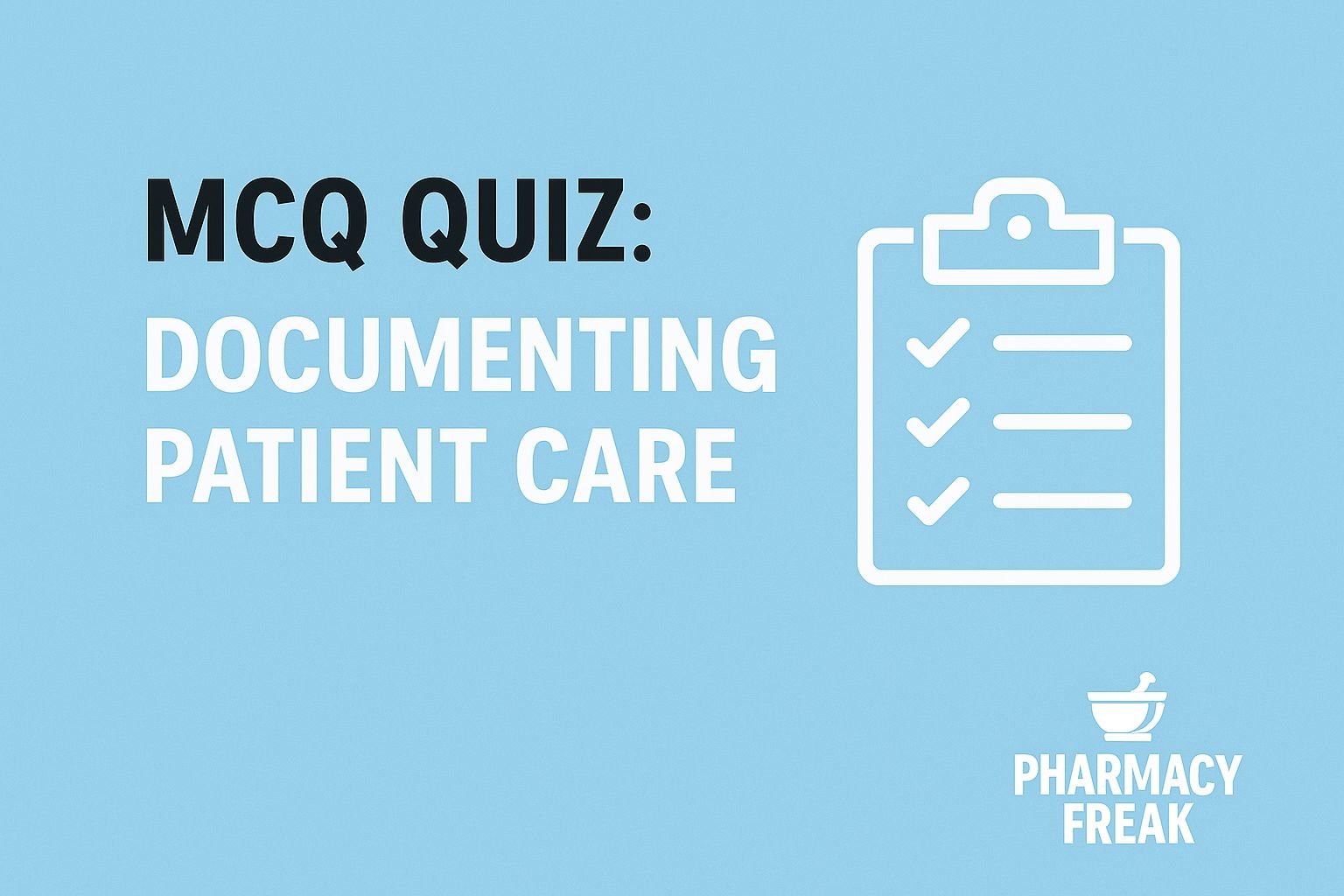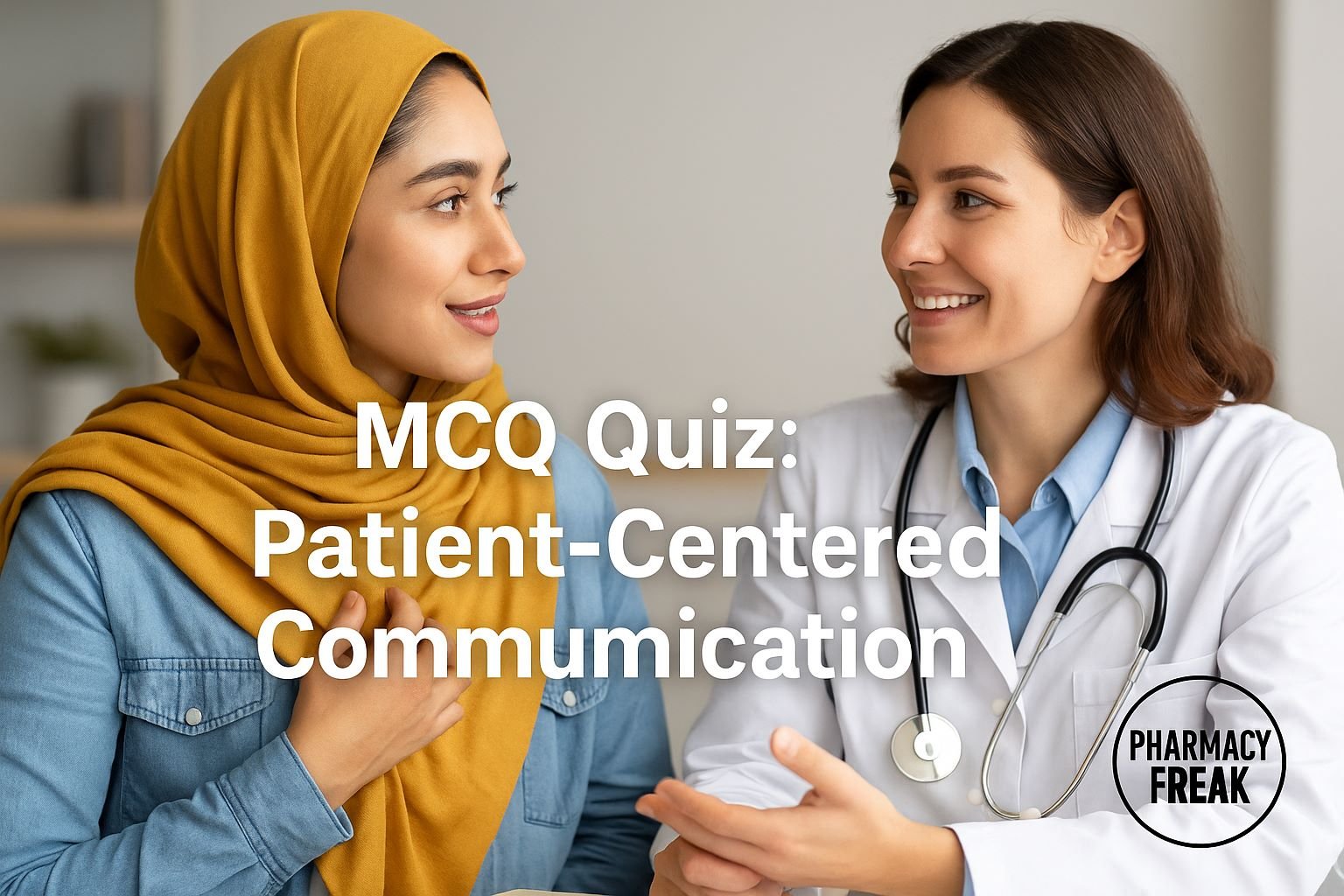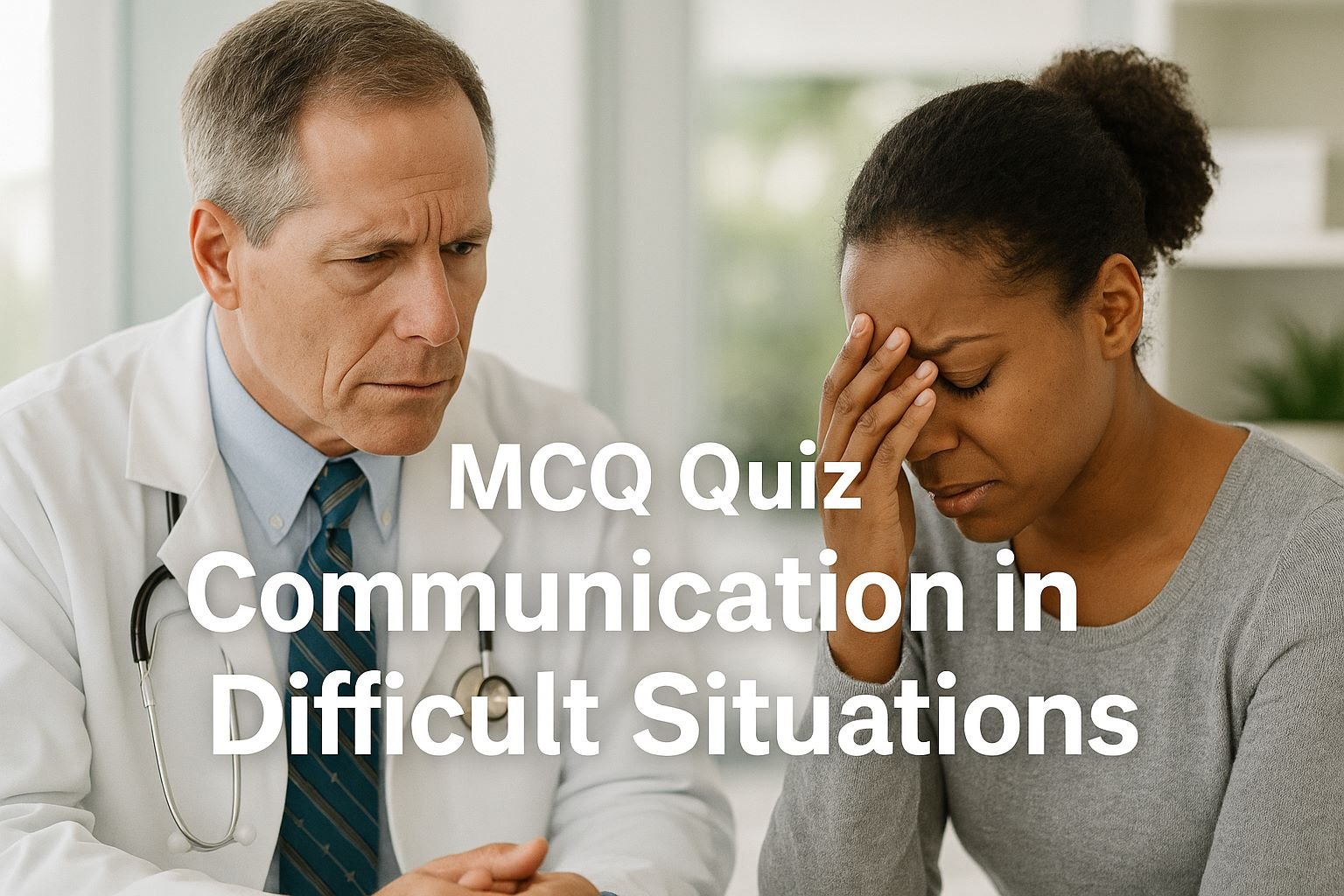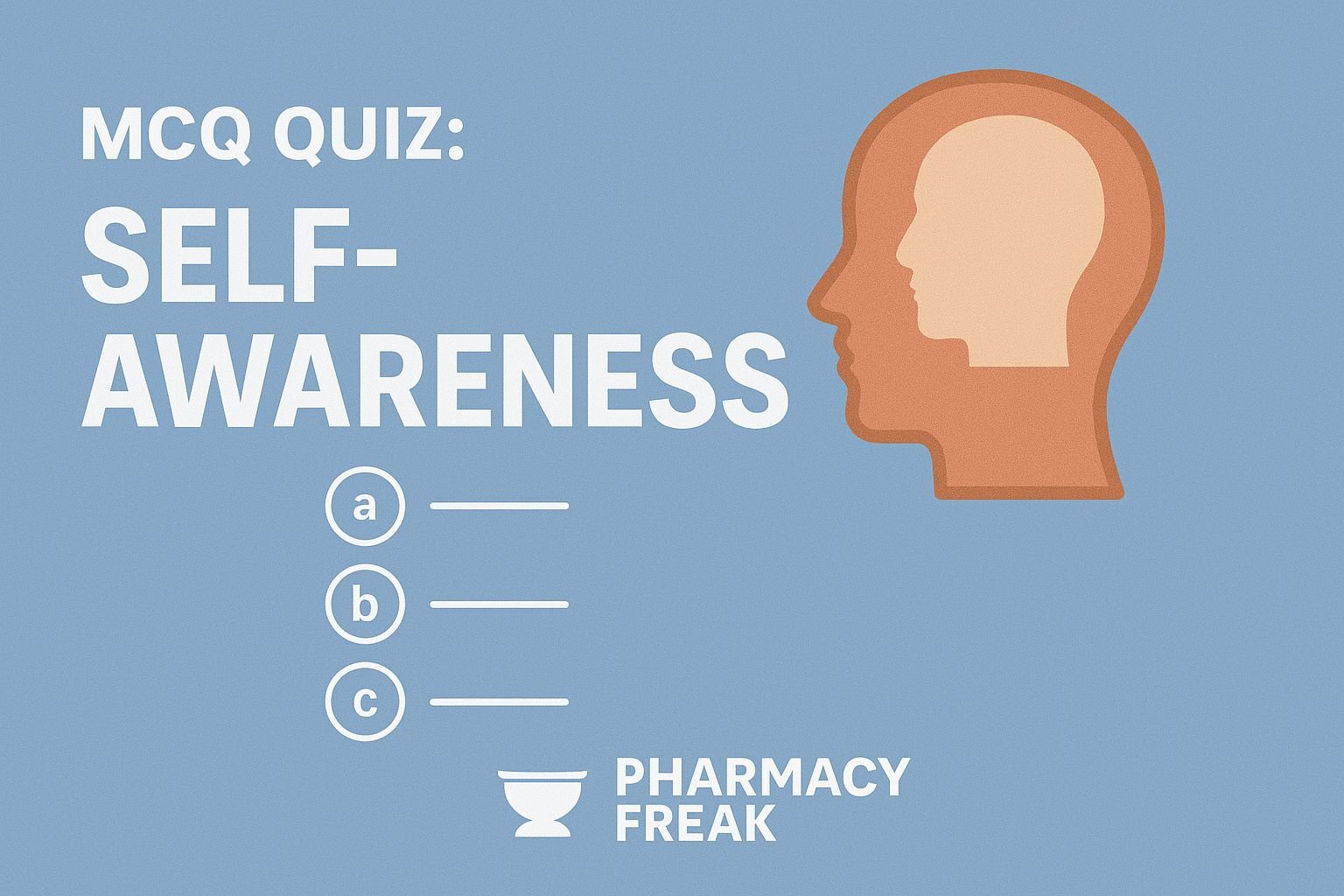

Principles of Patient-Centered Care MCQs: Overview
Our Principles of Patient-Centered Care MCQ collection helps pharmacy students and professionals review the key foundations of patient-focused practice. These multiple-choice questions are structured to reflect important themes in patient-centered pharmacy care.
What’s Included in These MCQs?
Medication Use Systems
Questions test your knowledge of how medication use systems function and how they can fail, leading to errors or adverse events.
Drug Therapy Problems
Assess your ability to identify, resolve, and prevent drug therapy problems in different patient scenarios.
Pharmacists’ Patient Care Process (PPCP)
Practice applying the PPCP to cases involving medication management, patient counseling, and adherence improvement.
Pharmaceutical Care Systems
Understand how to design and operate systems that deliver quality care, optimize patient outcomes, and reduce costs.
Communication and Empathy
MCQs cover essential skills such as active listening, rapport-building, effective communication, conflict resolution, and motivational interviewing.
Socio-Cultural Factors and Shared Decision-Making
Review how culture, patient beliefs, and values shape care decisions. Test your skills in shared decision-making and building partnerships with patients.
Who Should Use These MCQs?
PharmD students preparing for exams or in-course assessments
Pharmacy professionals seeking to update or refresh core patient-centered care concepts
Anyone interested in mastering the skills essential for modern pharmacy practice
How to Use This Resource
Use the MCQs for self-study, exam review, or group learning sessions
Check explanations, where provided, to understand the reasoning behind each answer
Revisit the questions regularly to reinforce key patient-centered care principles
Why Patient-Centered Care Matters
Patient-centered care is a core standard in healthcare. By mastering these topics, pharmacy professionals can:
Minimize errors and adverse outcomes
Improve patient satisfaction and adherence
Foster trust and partnership through effective communication and empathy
Our question bank is updated regularly to reflect current practice standards and curriculum changes. Use this page to stay current and excel in patient-centered pharmacy care.






